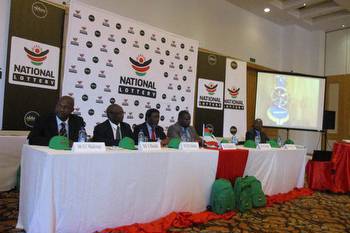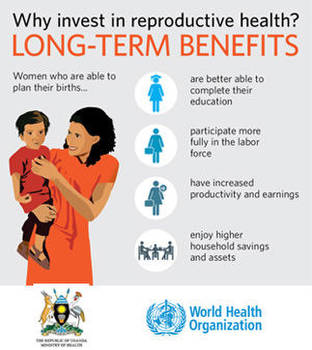iGaming in Africa: An overview

Africa is known for many wondrous things. From its expansive desert landscapes to its variety of beautiful cultures, the continent is filled with opportunities to explore and discover. It is also home to several growing industries, including the iGaming sector.
In some African countries, the iGaming market is making massive headways and growing at incredible rates; in others, iGaming is virtually non-existent or is facing strong opposition from local government and residents.
Whether you’re planning on traveling to this vast continent or simply looking to compare international laws, here is an overview of the African iGaming market.
iGaming
If you’ve heard the term “iGaming” but don’t fully understand it, it refers to any online platform that allows players to place a bet on an outcome of an event or casino game.
Under this definition, the iGaming industry comprises online sportsbook providers, online casinos, eSports, poker, and any other game or service that allows gamblers to wager real money online.
In 2022, the iGaming market was valued at almost $250 billion internationally. Africa accounted for around $2.2 billion—less than one percent of the world’s total market value.
Legislation
One of the core reasons for Africa’s small iGaming market is the strict legislation surrounding online gambling in many of its countries. Countries like Somalia and Egypt are well known for their strict gambling regulations. In both of these regions, online and in-person gambling are prohibited.
Other countries are beginning to develop iGaming industries, though it is a slow process due to the lack of regulations. In areas like Botswana and Angola, no laws expressly prohibit or allow online wagers.
Due to the lack of regulations, international operators provide their services to players in these regions. While many players in these unregulated regions have been hesitant to gamble online due to the unclear laws, this is slowly changing as more players register accounts and place wagers without repercussion.
In contrast to the strict countries mentioned above, many others have actively embraced iGaming. These territories have revised laws or passed new legislative bills that allow online gambling and set out a legal framework for the industry to operate. Some of these countries include:
South Africa
South Africa has the largest gambling market in Africa. The industry generates $1.8 billion (around ZAR 34 billion) annually and has recently had a massive influx of online casinos. Sports betting has also been allowed since the early 2000s.
All gambling activity, whether online or in person, occurring in the country is regulated by the National Gambling Act of 2006. This replaced the 2004 draft of the act, which was the first to make any provision for online wagering.
The South African National Gaming Board (SANGB) is responsible for monitoring gambling activity and ensuring that providers are licensed. Licenses are issued by various governing bodies based in the different provinces. One of the top bodies is the Mpumalanga Economic Regulator.
Nigeria
Second only to South Africa, Nigeria has a rapidly growing iGaming market. The country boasts the continent’s largest economy, meaning that residents tend to have spending money for placing wagers. With many online casinos launching that accept Nigerians, smart players are researching and finding the best licensed casino websites to use.
Providers in the country have to comply with all regulations set out in the National Lottery Act of 2005. This law encompasses the legal framework for all gambling activity within the country.
The Nigeria Lottery Regulatory Commission enforces the law and ensures all regulations are followed. The commission is responsible for the vetting and licensing of casinos operating in the region. Bookmakers also need to apply for a license from the commission to operate.
Ghana
For a long time, all forms of gambling were illegal in Ghana due to the Casino Licensing Decree issued in 1975. These laws were abolished with the passing of the National Gambling Act of 2006, which paved the way for a dynamic and expansive iGaming market.
Aside from legalizing almost all forms of wagering, the law also made special provisions to create a framework for iGaming services. The Ghana Gaming Commission (GGC) regulates all gambling in the country and is responsible for issuing licenses to operators.
Kenya
Kenya is one of the few countries in Africa with a long history of legalized gambling. The first laws regulating gambling were passed in 1966. The most recent 2011 National Gaming Bill establishes regulation for all forms of gambling, including online wagers.
Operators inside the country must apply for a license with the Betting Control Licensing Board. This board monitors all gambling activity within the region and ensures that gambling service providers operate according to the law.
Tanzania
Prior to online gambling, Tanzania did not have any solid legal gambling framework. The Internet Gaming Regulation of 2012 was the country’s first comprehensive law regarding gambling, including a core framework for regulating online gambling.
Although still small compared to countries like Nigeria, the iGaming industry in Tanzania is quickly gaining traction. The market growth is overseen by the Tanzania Gaming Board, which ensures all applicable regulations are followed and that websites are properly licensed.
Uganda
Uganda is one of the most recent African countries to support the online gambling industry. It is also one of the few countries—along with those mentioned above—where online wagers are legal.
The National Gaming Board of Uganda regulates all forms of gambling in the region. This board operates under the rule of the National Gaming Act, which was passed in 2013. Alongside licensing operators, the board ensures that players engage in gambling responsibly and that providers don’t take advantage of anyone seeking to place a bet.



































